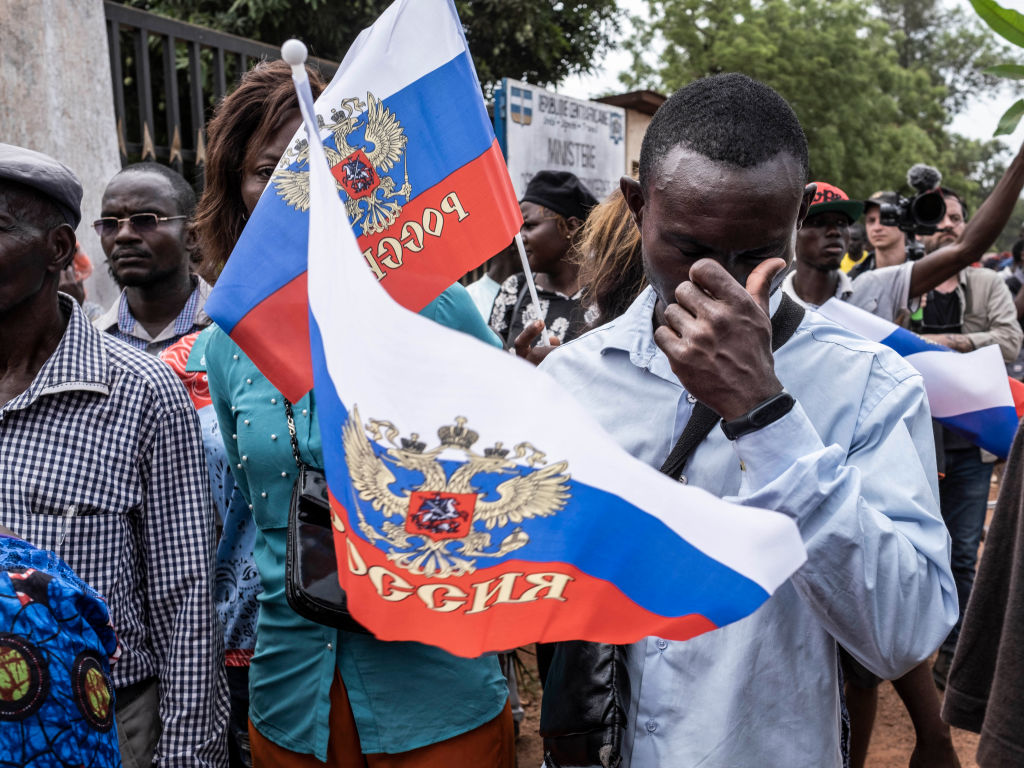ADF STAFF
More than 5,000 kilometers separate the battlefields of Ukraine from the gold mines of the Central African Republic (CAR), but the two countries have become linked through Russia’s Wagner Group.
Since arriving in the CAR in 2018, Wagner has spread to become involved in multiple aspects of the country’s economy and security sector.
In the process, the Wagner Group has helped Russia circumvent international sanctions imposed after the 2022 invasion of Ukraine by laundering gold and diamonds from the CAR to finance Russia’s war effort.
“From the start, Russia intended to exchange Wagner’s paramilitary services in the CAR for economic and geopolitical benefits,” Catrina Doxsee, associate director and associate fellow for the Transnational Threats Project at the Center for Strategic and International Studies (CSIS), told ADF via email.
“The degree to which it has succeeded in integrating itself into the country’s defense and political apparatus was likely unexpected,” Doxsee said.
Wagner’s affiliate Lobaye Invest has taken over gold and diamond mines, in many cases by driving out or killing the artisanal miners who have relied on them. Wagner-related mining operations generate an estimated $1 billion a year.
As part of the CAR government’s deal with Wagner, mining funds the mercenary group’s operations. The same agreement exempts Wagner from paying taxes on the resources it extracts, leaving the citizens of the CAR to endure the environmental and societal damage the mining inflicts.
Another Wagner affiliate, Diamville, moves gold and diamonds out of the CAR to other countries — often in the Middle East — where they’re converted to cash and deposited in Russian President Vladimir Putin’s war chest, according to research by CAR expert Anjan Sundaram.
Wagner originally was invited into the CAR to train the military in its long-running campaign against rebel groups, including the Coalition of Patriots for Change (CPC) led by former president François Bozizé. Today, however, Wagner mercenaries permeate all levels of society in the country.
They advise and protect President Faustin-Archange Touadéra. They have industrialized the previously artisanal Ndassima mine to increase production. They even control the country’s customs process. The group’s 1,200 members have joined CAR soldiers in raids on suspected rebel villages, leading to accusations of summary executions, brutality and human rights violations.
Wagner propaganda in films, radio and social media portrays Russians as protectors and saviors of the CAR and its citizens.
In recent months, Wagner has been suspected of the attempted arson of Bangui’s 70-year-old Castel brewery and has been accused of playing a role in the killing of nine Chinese nationals at the Chimbolo mine near Bambari in March. In both cases, attacks appear designed to undercut companies that compete with Wagner’s operations, including its own beer brand.
The CAR’s gold and diamonds are attractive to Russia because they can be traded outside the banking sector — a strategy that Iran and Venezuela have used in the past to circumvent sanctions.
“Wagner has built a strong network of shell companies across its deployments in Africa to exploit natural resources in countries such as CAR and Sudan, then smuggle raw goods to loosely regulated markets where it can easily evade sanctions,” Doxsee told ADF.
By undercutting international sanctions, those laundering operations are increasing tensions between international organizations and the countries doing the laundering, Doxsee said.
Despite Wagner’s history of smuggling the CAR’s mineral wealth and its brutality toward its citizens, it appears unlikely that Touadéra’s government will sever ties with the group, Doxsee said.
“The relationship between the CAR government and Wagner extends beyond that of a typical security contract,” Doxsee said. “For the government to withdraw support for Wagner, it would likely need a more attractive offer to fulfill the same functions with a guarantee of long-term, comprehensive support.”

